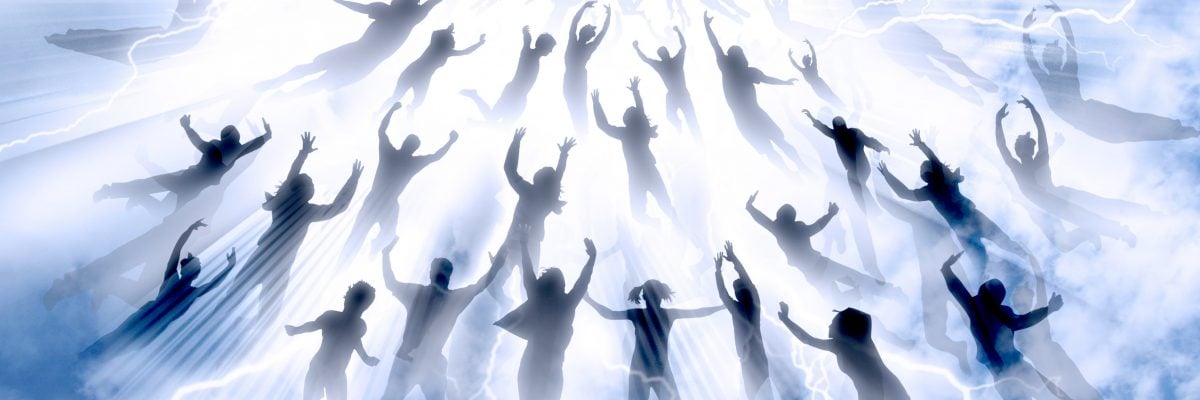
Question:
Answer:
First, this passage is not referring to the Rapture. When Paul says “we who are alive,” he’s referring to those who are on Earth at the time of the Second Coming.
From J. MacEvilly’s An Exposition of the Epistles of St. Paul and of the Catholic Epistles (published in 1898):
“We who live.” He speaks in the person of those who are to be alive at the day of judgment. In this verse, the apostle meets an error existing in the minds of the Thessalonians regarding the manner of the resurrection; they did not imagine that it would occur “in a moment, in the twinkling of an eye” (1 Cor.). They thought there would be in it a succession of time, and that those whose bodies were corrupted would be resuscitated more slowly; and hence, that they would see their deceased friends more tardily in glory. He removes this erroneous impression in this verse. He says “we who are alive,” not but he knew well, that he would not live till the day of judgment; but he wishes to teach us by his own example, always to keep in view and prepare for this great day, which virtually happens at our death (vol. 2, pp. 67-68).
D.B. Orchard writes in A Catholic Commentary on Holy Scripture (1953):
The Thessalonians knew their dead would rise again but apparently feared that they would not find them in Christ’s retinue at the time of his glorious return. St. Paul assures them that their dead will indeed be there; “slept through Jesus,” a unique phrase, equivalent to “the dead who are in Christ” of 15, cf. Rom 14:7-8. “In (the) word of the Lord” must mean either on the direct authority of a personal revelation of Christ to St. Paul himself, or it must refer to some saying or teaching of our Lord’s not recorded in the Bible, since nowhere in the Gospels did he touch on this precise point. “We who are alive . . .”: this much-discussed phrase is either (1) a quotation from the words of the question put by the Thessalonians, or (2) a literary device, common in St. Paul, by which he puts himself into the place and state of mind of his correspondents and ranks himself among those, whether now living or yet unborn, whom the Lord will find alive at his return. As it is clear from his answer to their second question (5:1-12) that neither he nor anyone else knows the time of the Second Coming, there can be no question here of his either teaching or hinting at the imminence of the Parousia, as many moderns have thought. His utilization of Matthew 24 is conclusive of his conformity with Christ’s own teaching on the Parousia, cf. § 914i.


